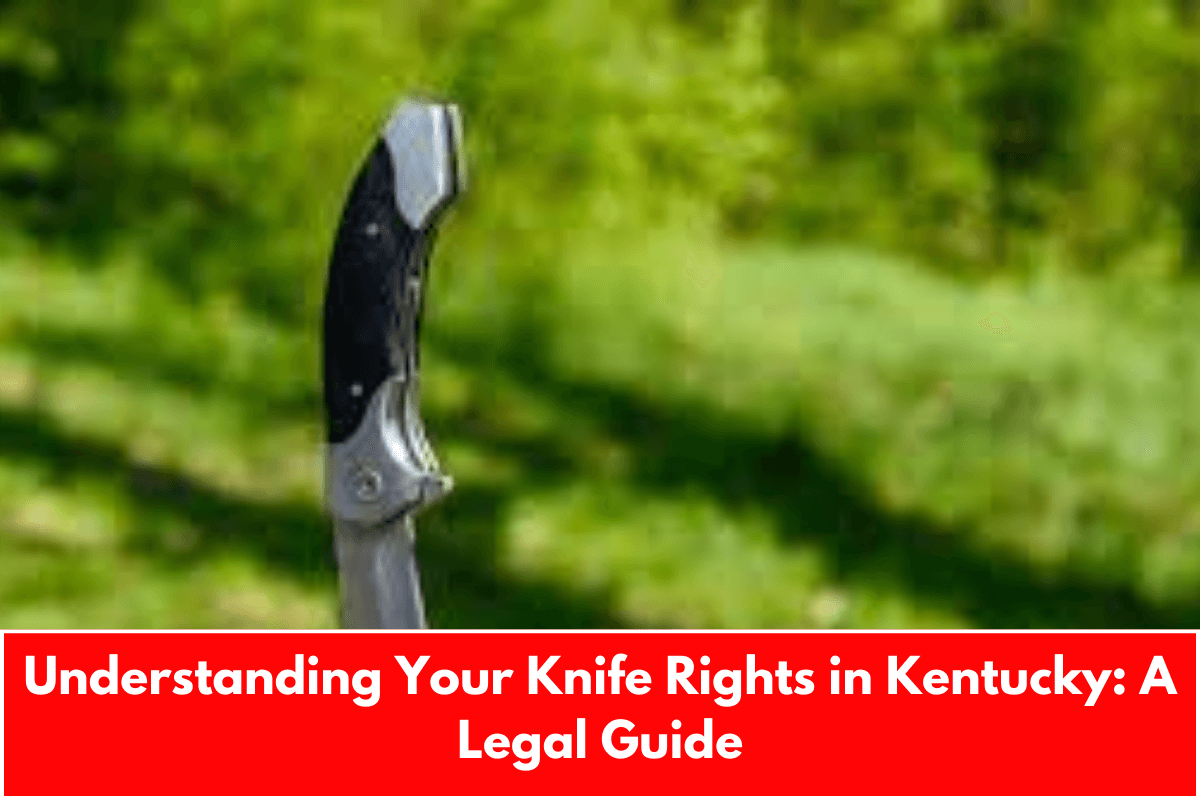In Kentucky, understanding your knife rights is essential for both residents and visitors who wish to carry knives legally. Here’s a comprehensive guide on the laws governing knife possession and carry in the state.
Types of Knives
Kentucky law categorizes knives into two main groups: deadly weapons and non-deadly weapons. The distinction is crucial because it determines how and where you can carry a knife.
- Deadly Weapons: According to Kentucky Revised Statutes (KRS) §500.080, a deadly weapon includes any knife that is not classified as an “ordinary pocket knife” or a “hunting knife.” This means that most fixed-blade knives, switchblades, and other tactical knives fall under this category.
- Non-Deadly Weapons: Ordinary pocket knives and hunting knives are generally not classified as deadly weapons and can be carried without restrictions.
Carrying Knives
- Open Carry: In Kentucky, you can openly carry any type of knife without a permit. This applies to both adults and minors (those under 18), as long as they comply with other laws.
- Concealed Carry: To conceal carry a knife classified as a deadly weapon, you must obtain a concealed carry permit. The process for obtaining this permit is similar to that of firearms. Individuals aged 21 and older can apply for a Concealed Deadly Weapons License (CDWL), which allows them to carry concealed deadly weapons, including certain knives.
- School Property Restrictions: It is illegal to carry any knife classified as a deadly weapon on school property. Violating this law can result in serious criminal charges.
Legal Considerations
- Warrantless Searches: If approached by law enforcement, be aware of your rights regarding searches. Police generally need probable cause or consent to search your belongings, including knives.
- Self-Defense Claims: If charged with carrying a concealed deadly weapon without a permit, it may be possible to argue that the knife in question is not classified as a deadly weapon if it can be shown that it serves other purposes (e.g., for camping or fishing).
Kentucky’s knife laws provide relatively broad rights for carrying knives compared to many other states. Understanding the definitions of deadly versus non-deadly weapons, the requirements for concealed carry permits, and the restrictions regarding schools can help individuals navigate their rights effectively. For specific legal advice or situations, consulting with an attorney familiar with Kentucky law is recommended.
SOURCES
[1] https://baldanilaw.com/kentucky-knife-laws/
[2] https://www.akti.org/state-knife-laws/kentucky/
[3] https://ravencresttactical.com/kentucky-knife-laws/
[4] https://www.nraila.org/gun-laws/state-gun-laws/kentucky/







